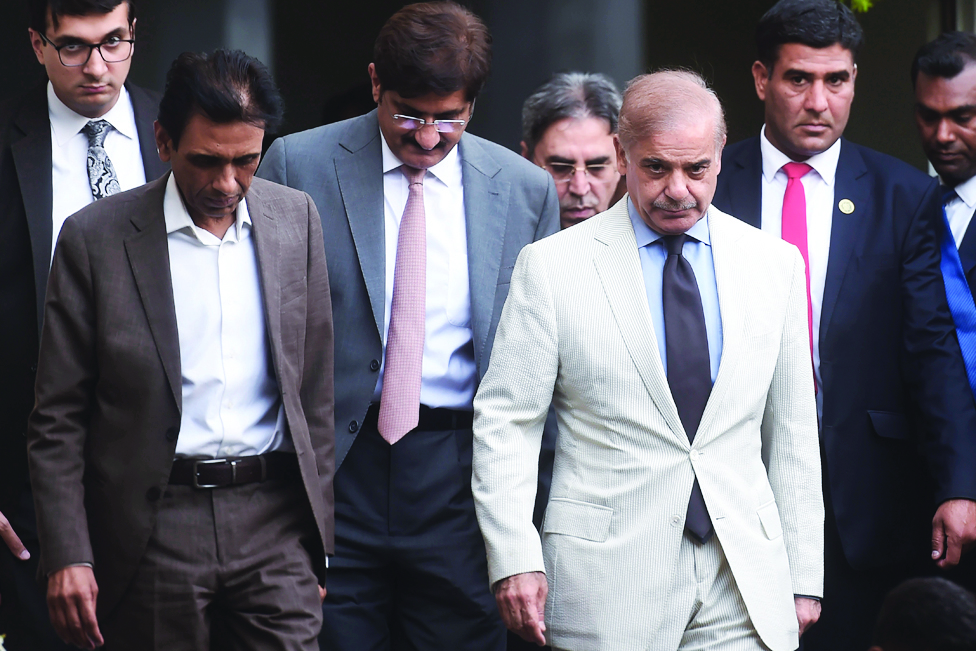ISLAMABAD, Pakistan: Pakistan Prime Minister Shehbaz Sharif sprang no big surprises in naming his new cabinet Tuesday, doling out key portfolios to officials from the two parties that combined to oust Imran Khan after weeks of political crisis. The cabinet is drawn mostly from Sharif's Pakistan Muslim League-N (PML-N) and the Pakistan Peoples Party (PPP), two usually-feuding dynastic groups who combined to force a no-confidence vote that ousted Khan on April 10.
How long the government lasts remains to be seen, however, as most of Khan's Pakistan Tehreek-e-Insaf (PTI) lawmakers have quit parliament and the former cricketer turned politician has taken his fight to the streets to press for an early election-which must be held by October next year.
"It will be an uphill task for the prime minister to pull them together in one direction because some parties have local and regional interests, and some have national interests," analyst Hasan Askari told AFP. "If they handle economic issues, other problems will settle down-but if the situation worsens, everyone will blame the PML-N, which is in majority."
Sharif, brother of three-time prime minister Nawaz Sharif, did not name a foreign minister but that role is expected to go to the scion of another political family, 33-year-old Bilawal Zardari Bhutto. The PPP's Bhutto is the son of former president Asif Ali Zardari and assassinated ex-premier Benazir Bhutto, as well as the grandson of another prime minister, Zulfikar Ali Bhutto, who was executed in 1979.
If confirmed, the Oxford-educated Bhutto would be one of the world's youngest foreign ministers and tasked with repairing links with the West that frayed under the leadership of Khan, who accused Washington of conspiring to oust him. Hina Rabbani Khar, Pakistan's first woman foreign minister in the last PPP government, was named deputy.
Economy in doldrums
The key finance ministry returns to Miftah Ismail, a PML-N loyalist who served as deputy and briefly minister during the party's last tenure from 2013-2018. He inherits an economy in the doldrums, with crippling debt, galloping inflation and a feeble rupee.
In meetings leading up to his appointment, Ismail said improving relations with the International Monetary Fund and getting a loan program back on track was a key priority, as was improving tax collection. New Interior Minister Rana Sanaullah, meanwhile, will have to tackle rising militancy and the threat of civil unrest from the huge public rallies Khan has called across the country in the months ahead.
He was arrested on drug charges in July 2019 by the anti-narcotics squad in a case that is still unresolved. Sanaullah is one of at least four new ministers-including premier Sharif-facing criminal investigation or charges from when they last held office, a frequent occurrence in Pakistan politics when there is a change of government.
There were just five women in Sharif's 37-member cabinet, including outspoken Mariyum Aurangzeb returning in charge of information and responsible for selling the government's message in what promises to be a heated lead up to any next election. - AFP











